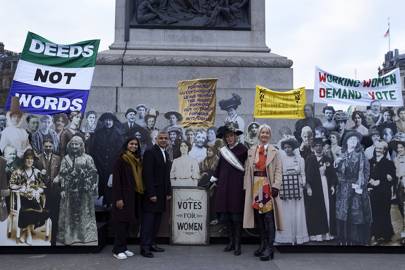Over the last few months, we have watched families suffer unimaginably, their faces heavy with grief and loss. We have gasped in wonder at the brave hope of key workers, layers of plastic protection failing to hide their reassuring smiles. We have dared to imagine a future outside this strange and apocalyptic time, where nothing feels familiar except the inside of our homes.
With so many of us uncertain of what the post-pandemic future looks like, with worries about job security and the health of our loved ones dominating our thoughts, for many, meeting their basic, fundamental needs has become a silent struggle.
Periods don’t stop for pandemics. Despite everything moving at a blistering pace around us, with news moving so fast that we can barely absorb the latest statistics of infection rates, testing, and lockdown easing, one thing we know is that periods are a constant. A constant cost we can’t dodge, even when our incomes fall, and our jobs seem altogether too fragile.
Period poverty has always blighted the lives of the poorest in our society as they face a monthly struggle to afford pads and tampons. This year, after we campaigned for two years to persuade the government to make period products freely available in schools, the scheme in England was finally rolled out in all schools and colleges in England from January. But with schools closed because of Covid-19, children who had become reliant on these free products were suddenly at a loss.

Getty Images
I know this from my own interactions with some of them, whose families live at the sharpest end of poverty, and who daren’t ask for money for pads when they know there isn’t enough food for a meal. They are the girls who would miss school because they fear their one pad, swollen with blood, will not last a whole day, who face a strangling dread at the same time each month.
This month, a new report by Plan International UK reminded us of the realities of period poverty in lockdown. One in three young women and girls in the UK have admitted they are struggling to afford menstrual products, with over half resorting to using toilet paper instead. Although schools can still order in the products during lockdown, one third felt too embarrassed to seek out free products, such is the stigma and shame surrounding periods; the embarrassment associated with menstruation, even in this new decade which promises to be more progressive than ever. The patriarchal norms in our society has meant that period stigma is deeply and stubbornly entrenched.
My family’s grocery bills, with few offers available during the pandemic, combined with rising food costs, have skyrocketed. For so many, this has only exacerbated their financial worries, combined with whether their job hangs in the balance, whether unemployment will be part of the ‘new normal’ that awaits us on the other side of the pandemic.
As panicked stockpiling clears supermarket shelves of pads and tampons, and toilet paper is sold on eBay for multiples of its original cost, it’s not surprising that 20% of the young women and girls surveyed have found themselves unable to access toilet roll and almost 65% said they couldn’t find period products in shops.
It’s no surprise that donations to food banks have seen dramatic falls in recent weeks. The most vulnerable and marginalised in society extends beyond this demographic; in even the wealthiest of cities across the world, the pandemic has had a devastating impact on homeless women, refugee and asylum-seekers. Reductions in donations to asylum drop-in centres and the closure of some food banks has meant that some women are going without food to buy pads.
Globally, period poverty was already a reality for so many women living in poor and marginalised communities, but the pandemic has made it almost impossible to access clean water, sanitation and pads. Women have found themselves without an income as economic meltdown in countries such as Kenya has meant loss of jobs, and with it, economic empowerment.
Today is Menstrual Hygiene Day, and much of the world is still in lockdown. Post pandemic, we must ensure that menstrual health remains one of the most fundamental human rights, and as we strive to carve out a world which is equal for all, this cannot be ignored.
Today, we are launching the online campaign #PeriodsInAPandemic, encouraging everyone to post their honest and awkward experiences of how their period has been impacted by this global catastrophe, and the sudden changes brought about by lockdown.
There must be no space for the stigma, silence and misinformation that has been bound up in menstruation for centuries, and as we ease back into our lives when this is over, we must push to accelerate progress for women who are not able to meet their fundamental, basic needs, and continue to fight the oppressive, gendered shame associated with our periods.
